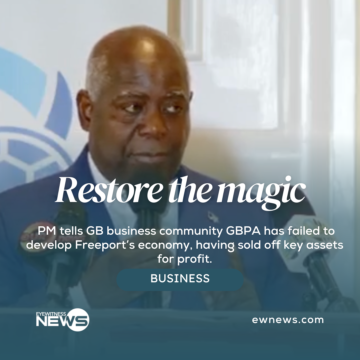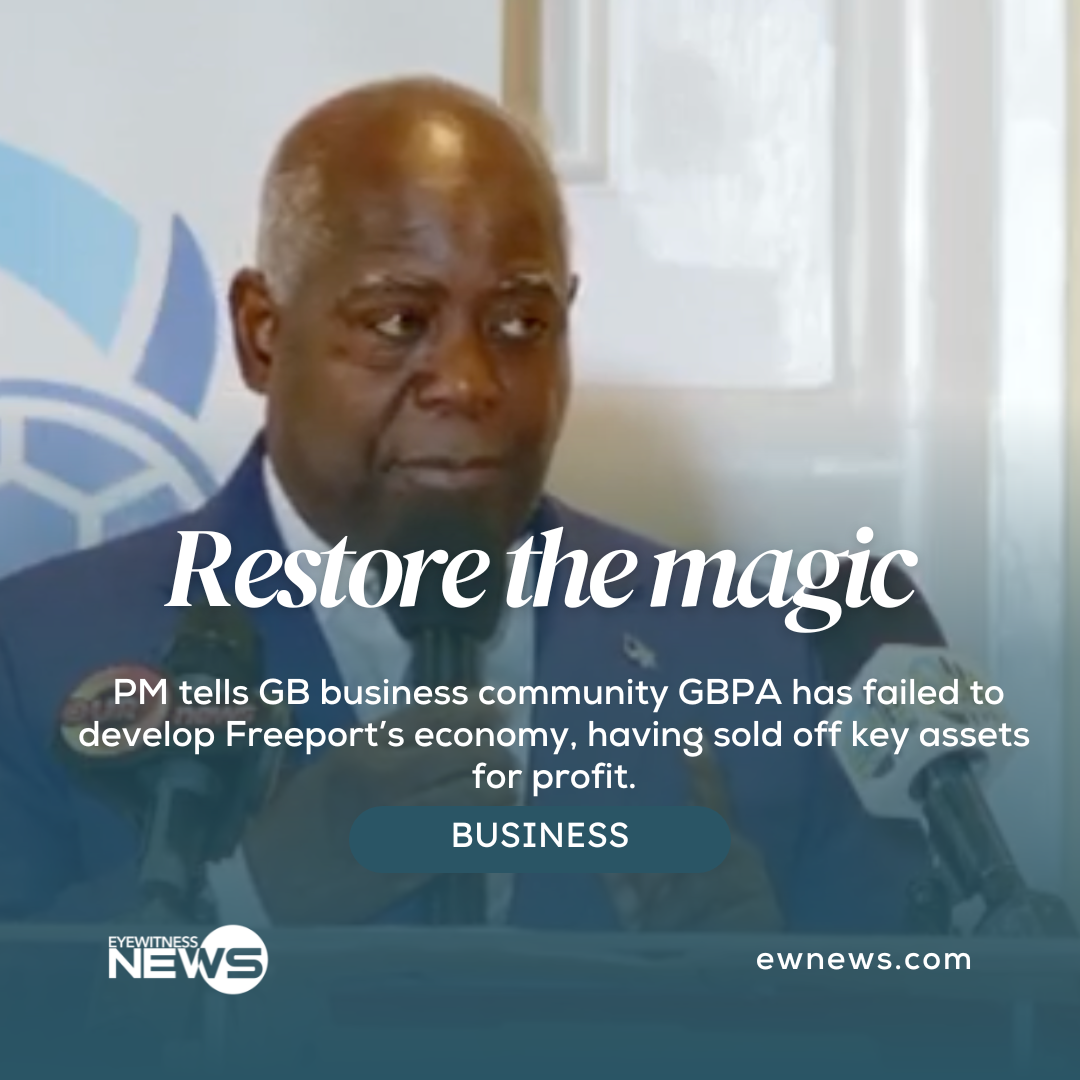
NASSAU, BAHAMAS — Prime Minister Philip Davis reiterated yesterday that the Grand Bahama Port Authority, despite significant concessions granted to it, has failed to fulfill its obligations to develop the Freeport economy, suggesting that the entity was solely focused on collecting licensee fees, having sold off key assets for profit and to the detriment of the Grand Bahama economy.
Prime Minister Davis, during an address to the Grand Bahama Chamber of Commerce, acknowledged that the Hawksbill Creek Agreement had allowed Freeport to develop quickly in ways that would have otherwise been impossible.
“The long-term tax concessions and development rights gave major players the confidence to build a deep-water harbor and the infrastructure necessary for turning a sparsely-populated island into a significant economic center, one that soon boomed with activity and industry. Not every initiative in those years succeeded, but many did. And where there had once been only pine barrens, there were roads and factories and opportunities,” Davis noted.
Still, he questioned how many Bahamians had truly been the benefactors of that arrangement to justify the millions in concessions.
“Maybe the problem is not that successive governments have asked too much from the Port Authority, but rather that governments have asked for too little. I have had enough of the scare tactics,” said Prime Minister Davis.
He argued that the Port Authority had ample time to demonstrate its desire for a true partnership with the government. “There is just too much evidence that they care more about their infighting and shareholder lawsuits than our people. This is what happens when cities are treated like family heirlooms, passed down without a thought as to whether those inheriting are willing to serve the interests of our communities over their profits,” he noted.
Davis added: “They’ve divested themselves of key assets—sold for private profits the very assets that would allow them to develop the economy in Freeport, as they are required by law to do. They sold the road-building company, the harbor company, the utility company, the power company, and even the sanitation company. They were happy to offload the airport to my predecessor, who somehow consented for the Bahamian taxpayer to take on the liability of rebuilding the airport. When the Port Authority owned all of these assets, they had a credible argument to make to investors. But now? Now they appear primarily to be in the license fee-collecting business.”
Davis questioned what was done with the proceeds from selling off those assets, arguing that it was not invested in the climate-resilient infrastructure Grand Bahama needs at this time. “They’re leaning on you, collecting your fees, but they’ve sold off the assets that would allow them to bring the kind of game-changing investments that are so overdue in Grand Bahama. They haven’t kept their obligations to you, and they haven’t kept them to Bahamian taxpayers more broadly, either,” he added.
On March 26, the government sent the Port Authority an invoice covering the last five fiscal years, for a $357 million claim outlined in an audit prepared by PriceWaterhouseCoopers. The GBPA is disputing that claim. Davis noted that both parties are now proceeding along the mutually agreed-upon path following the sunset of 30 days’ notification.
He urged the business community to leave fear in the past and proceed with confidence. “Let’s liberate Grand Bahama from the purgatory of unrealized potential! We give the Port Authority extraordinary concessions – in return, we should get extraordinary growth. Instead, Grand Bahama’s economy has lagged behind other islands. The Port Authority collects your license fees. But they long ago stopped earning them. I cannot explain why the current shareholders are not more productive partners for Grand Bahama. Let me be clear: we will never take steps that water down any of the rights or privileges or benefits you enjoy now,” Davis said.
Аз ҷониби Эхо RSS Plugin аз ҷониби CodeRevolution.


Шарҳҳои охирин